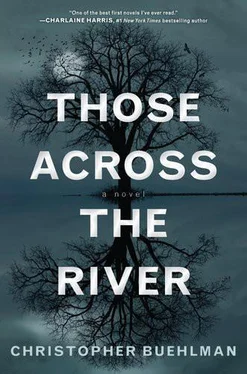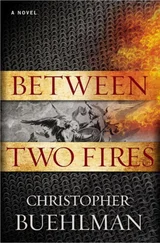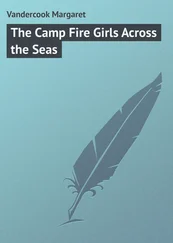There were a lot of pictures in that box that Eudora enjoyed mooning over. She liked my school pictures. In one of them, Dan Metzger, John Giangrande and I were posing on the basketball court at St. Ignatius. Dan was too husky for basketball and got dropped from the team shortly after, but in that photograph he looked as proud as he could be.
Dan was one of the friendliest and sweetest guys I ever knew. He was always half a head taller than the other kids and naturally built to carry weight, but he was soft. The meaner kids knew it and, when they could catch him alone, circled him like wolves around a bison. This never lasted too long before his friends came to help him and it turned into a proper tussle. If it was at school, Father Patterson would come out with two yardsticks taped together and scatter us. Following a general round of spankings (Father Patterson favored the backs of the thighs), it was even money whether his tormenters would get lectured for bullying, Dan would get lectured for not standing up for himself, or I would get lectured for my “flawed moral silhouette.” For a Jesuit, Father Patterson was remarkably inconsistent; I think he believed Jesus was happy as long as everyone was beaten and anyone at all was rebuked.
When the war broke out, Dan and I signed up for the Illinois National Guard together, along with our mutual buddy from St. Ignatius, John Giangrande, whom the Poles, Irish and well-bred Anglo-Saxons of St. Ignatius had christened “Guinea-Granny” because of his name and the tiny, wire-framed glasses that were always slipping down his nose. We all had glasses, but his looked like an old lady’s, and he was unmistakably Italian, so the name stuck for good. His friends respectfully dropped the “Guinea” part, but there was no shaking “Granny.” He was two years older than us, but small and weak. He hung out with us gladly, having been socially rejected by his peers. Uncle Sam didn’t reject him, though. When the army found out how good Granny was at chemistry, they yanked him out of the 33rd Prairie and shipped him off to the 1st Gas battalion at the Edgewood Arsenal in Maryland.
Dan and I stayed in the 33rd and went through training together stateside, both at Camp Grant and Camp Logan. He had barely made weight when we joined, but by the time he got done training he was skinnier than me. We were on that reeking ship together all the way to Brest. In short, we were inseparable from fourth grade until the shelling at Nine Elms trench on the Somme, which was in July of 1918.
We were so goddamned eager to go.
We were so stupid.
I MADE THE river around two.
Unfortunately, the raft or ferry I had seen with Lester was nowhere in sight; I had wandered off of the crossing point. I looked upriver and then downriver, but couldn’t determine which was the right way to go.
Gordeau had said the river wasn’t very deep, but looking at it didn’t help; the surface just reflected the hazy brass sky above it while pieces of moss and sticks floated by. He had mentioned water moccasins, and I could see that the bunches of reeds and lichen-covered rocks on both banks would provide ample hiding places for such.
“To hell with it,” I said to nobody.
I put the camera down, removed my shoes, tucked my socks in them and waded out to test the depth of the river. The bed was mostly soft underfoot, but the mud and clay were punctuated with rocks that proved slippery; I nearly fell twice before I got to the middle and determined that it wasn’t likely to get worse than hipdeep. I returned to the bank and, deciding it was too far for me to throw my shoes across, I tied the strings together and hung them around my neck. I carried the camera up over my head and crossed; about mid-river I got a case of the giggles when I imagined I was Saint Christopher holding the Holy Babe aloft.
What’s your name, little fellow? My, but you are getting heavy. But I shall not drop you, for I am Holy.
Lester Gordeau’s instructions had included a landmark called Madge-Eye Rock, which was as far as he had claimed to have ever gone in this direction.
“When you git bout a mile an a half pass the river, keepin to the trail, you’ll come to a little spring called Madge-Eye Rock. Ain’t too big, but the water out of it is cold and good drinkin, sept that taste like it come out of a skillet. S’pose to be bad luck to drink out of it, or not to drink out of it, I cain’t recall. They’s all kind a stories bout them woods pass the river.”
“Magi,” I said when I saw it, “as in Three Magi.”
I had spent some time during my walk trying to puzzle out what a madge-eye could be, but now it was clear what the christener of the spring had seen; three separate but connected shelves of rock rose to chest level, each of them producing a small trickle of water that drained off into a sort of sink. Orange stains beneath the spigots and in the sink testified to large quantities of iron in the water, which I tasted when I cupped my hand beneath the central spigot and put it to my mouth.
Cold.
The source was deep.
I had tasted water from such a well, years before, in England, where I had convalesced after my injury in France. My dad had pulled strings so I got a good long leave overseas before I came home for decommissioning.
Everything in England was so tidy, though. America was the wild one now. The rock shelf wore a crown of ferns and moss, and, behind the spring, on the higher level, rocks jutting out from beneath the topsoil suggested a tail pointing deeper into the woods. It was pretty here.
I filled my canteen.
I pressed on another hundred yards. What I saw then did not precisely frighten me, but it made me uneasy. Pine trees had begun again to compete with their deciduous cousins, and two of them stood on opposite sides of the trail, like columns. Like some sort of gate.
They had both been gouged.
I mused that in colonial days the great pine forests of the South had been treasuries for resin, pitch, tar and turpentine, but that the British navy held American pitch in some contempt, for it was too hot and burned the ropes. I knew that sap was gathered by making slaves notch the trees on both sides and take from them until the trees died and could be burned to make tar.
These two pines did not bear the marks of agriculture; they had been savaged. Just at the level of a grown man’s trouser pockets. No saw or axe had done this, but I was hard-pressed to say what had. I did not know if the gouges were intended to discourage further exploration, but looking at them gave me a curious feeling in my groin.
I kept going.
Soon after that I lost the trail and stumbled into a patch of nettles. They barbed the hell out of me, even through my pants, before I managed to peel myself free and continue on. I would have to stay more focused; I couldn’t afford to lose time if I intended to find the battlefield, which Lester said his daddy told him was a half mile north of the trail two or three miles past Magi Rock, “in some young birch and dogwoods where they mix up with pine.”
I felt embarrassed about losing the trail. Martin Cranmer was right about my woodsmanship; I was a Chicago boy through and through, awkward and top-heavy in the woods. What’s more, it was no mean feat for me to even enter a forest after the Argonne. I had worked on that in Michigan, taking long walks alone in the woods near Ann Arbor, even if I had to get boozed up to do it; it wouldn’t have done for a grown man to spend the rest of his life getting the tremors every time he was surrounded by trees, afraid the next snapped twig would be followed by the bark of a machinegun nest opening up. By and by it had gotten better.
I thought about Cranmer crouching in the trees near the burntdown house. Or was that a conceit on my part, imagining Martin had to crouch to avoid my notice? But then, Lester hadn’t seen him, either. Dora had not seemed to like Cranmer very much. Had she gotten an extra earful of gossip about him when she was in town?
Читать дальше












